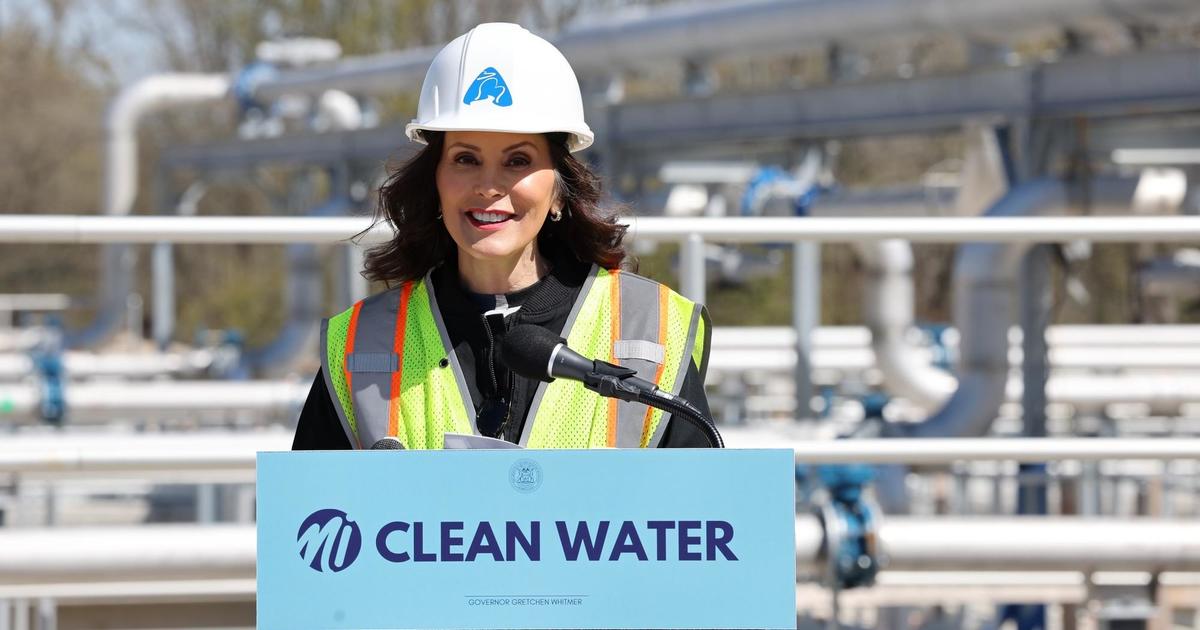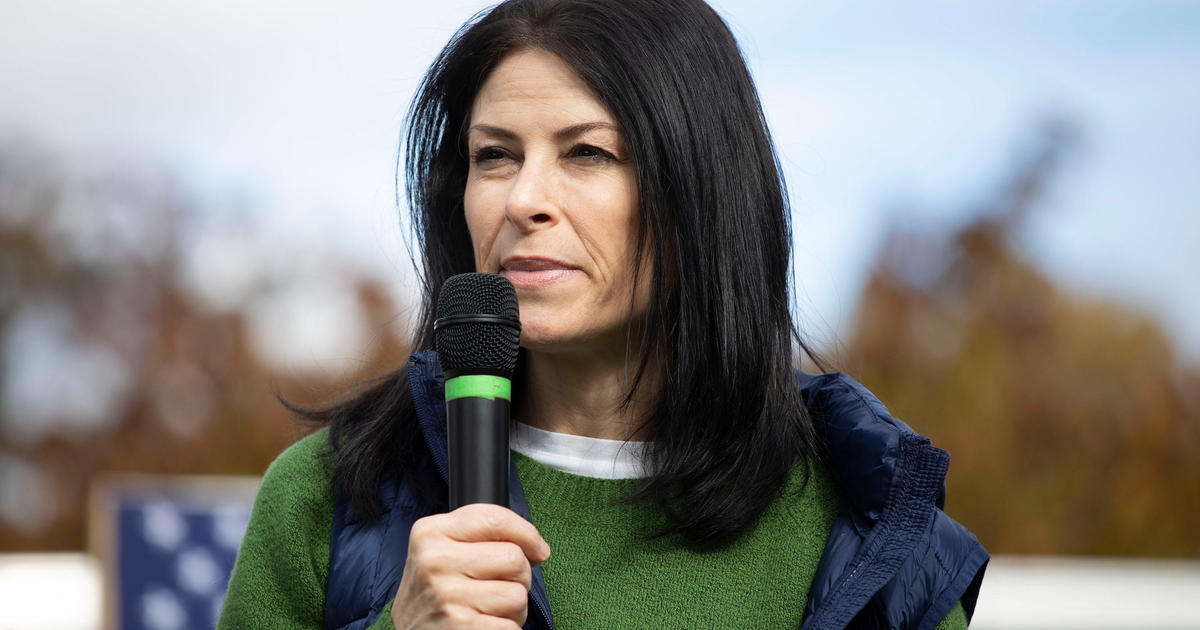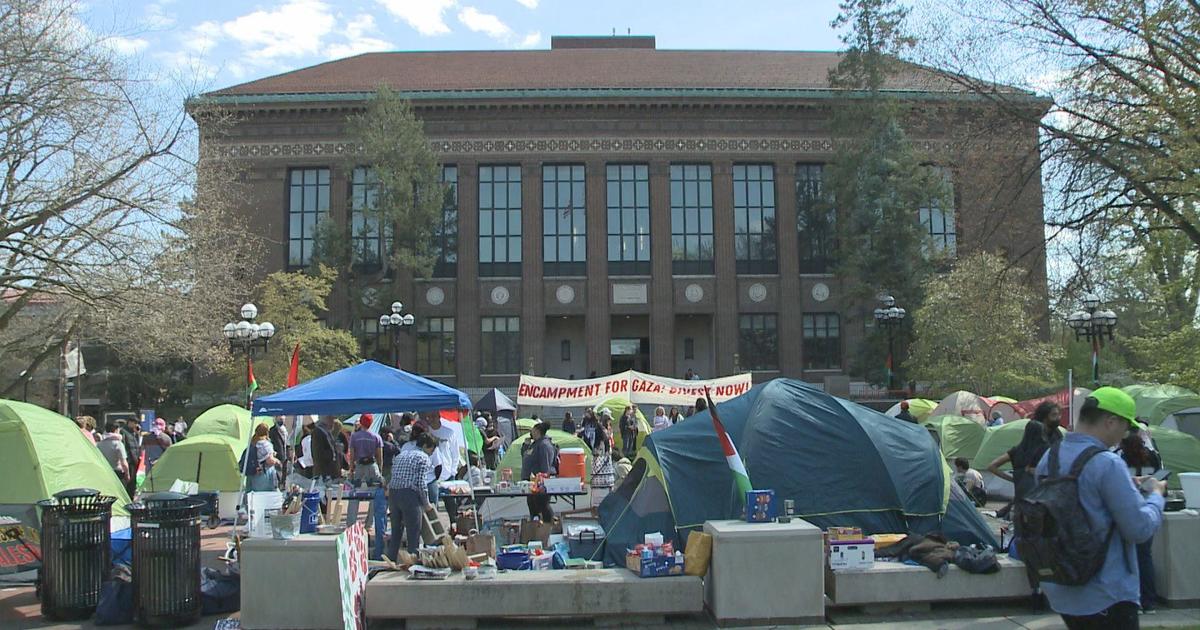Ferris Conference Seeks To Wean U.S. Off Oil
A blunt assessment of America's energy problems from Congress' just-retired "Mr. Science" kicked off Day Two of the Michigan Energy Conference at Ferris State University Wednesday.
"Why do you think we're in Afghanistan? Why do you think we went into Iraq? Why do you think we're worried about Libya? Because they are places with oil and oil is a precious resource," former Congressman Vern Ehlers, a Ph.D. physicist, said at the event in Big Rapids.
Ehlers said that energy is intangible to most people -- and that he wishes it was bright purple, so people could tell when it's being wasted.
Ehlers urged a radical rethinking of how we approach energy sources. Instead of dividing them into renewable vs. non-renewable, Ehlers put them into the categories of a family budget, "income," "savings" and "inheritance."
Our income we can relatively freely use with little damaging consequence to our long-term financial future. Here Ehlers put solar, wind, biomass, hydropower, wave and tidal energy.
In the savings category -- which we can use, but we ought to be careful about it, and use it only on really important stuff -- he put wood, coal, oil and natural gas.
In the inheritance category, which most people wouldn't touch except in case of emergency, he put nuclear power.
"We should be as careful with our use of savings and inheritance energy as we are with our savings and inheritance money," Ehlers said. "We mut balance our energy portfoilo and develop new sources."
Ehlers also called for broad, mandatory education in mathematics and science to combat scientific illiteracy. And he said most teachers aren't taught how to teach science effectively.
"I will never say a bad word about teachers," Ehlers said. "They desperately want to teach science and math. They've just never been taught how to teach it, and they haven't taken the right math and science courses themselves."
The day's second keynote came from George Erickcek, senior regional analyst at the Upjohn Institute for Employment Research, a Kalamazoo economic think tank.
Erickcek said that even with rising gas prices, falling housing prices, and Washington in turmoil, the U.S. economy is expected to keep growing at a healthy pace the next couple of years. And Michigan is expected to create around 140,000 net new jobs the next two years.
The problem? We're not much more economically diversified than we have been in the past -- most of that growth comes from the auto industry.
What bothers Erickcek is American society's discount rate -- the rate at which it treats today as vastly more important than tomorrow. America has a teenager's discount rate, he complained -- the future means very little. That's how we justify slashing education spending, doing little or nothing about climate change, and taking few honest, serious steps to cut the federal debt. Americans also don't want to talk about rising income inequality, he said -- the fact that recent years' improvements in worker productivity haven't been shared with those workers.
Erickcek said that whatever comes out of Washington, the best weapon against the federal deficit is a growing economy, and we're headed back in that direction.
Wind energy entrepreneur Rich VanderVeen provided the day's third keynote. VanderVeen was involved in the project to install the first big wind generators most Michiganians had ever seen at the tip of the Lower Peninsula in Mackinac City. Now he's inovlved in the the Gratiot project, which will add more than 130 massive, 1.6-kilowatt wind turbines on 100-meter masts along M-46 between Alma and Merrill. Each turbine, he said, can power 500 homes.
VanderVeen said he's a major proponent of offshore wind power in Michigan, though he understands that "for those fourth, fifth, sixth generation cottagers, that lakefront view is a holy vista ... we're on sacred ground." He said he'd solve the problem by putting them six miles offshore, where they'd be practically invisible.
VanderVeen said he got into wind power as part of a broader effort to keep Michigan's farmland in farming rather than suburban sprawl. The easiest way to do that, he said, is to put more money in the hands of farmers.
"This is a new crop at 400 feet up," VanderVeen said.
Peter Varga, CEO of the Interurban Travel Partnership, the Grand Rapids urban transit system, complained about America's historically low investment in public transit in a speech after lunch. His lament: "Most Americans don't have a clue" why rapid transit, highways and bridges are falling apart. The answer: Gasoline taxes haven't been raised from 18.4 cents a gallon since 1993. "Imagine if you hadn't received a raise since 1993," he said. He'd raise it six cents a gallon. And long term, even a higher gas tax won't work, because it represents a tax on a diminshing resource -- oil.
The event concluded with more breakouts on everything from implementing energy efficiency and renewables programs in Michigan schools to how the city of Grandville is developing the recovery of useful biogas from its wastewater treatment plant to Kalamazoo Valley Community College's wind turbine design and building course to energy efficiency in rural areas to the low-hanging fruit of green building.
At the green schools event, architect and builder Emile Lauzzana said that the White House "now believes in pricing energy on the basis of its full cost to society," including things like the armed forces required to keep the oil flowing and pollution cleanup. Unfortunately, he said, that White House was Richard Nixon's.
Lauzzana, director of Energy Works Michigan, a nonprofit organization administering the Michigan Renewable Schools Program, described how the five-year, $8 million project is helping more than 100 Michigan schools save money while teaching kids about conservation and renewables. So far, the average project costs $148,000 and has a payback of $31,000 a year -- about a five-year payback.
Lauzzana also offered sobering assessments on climate change, including one scientific prediction that in 85 years, Michigan's summers will be like Arkansas', and its winters like southern Ohio's. He said he wondered what it would mean to Michigan agriculture to have summers as hot and dry as Arkansas. And it's not just warming, it's increasing climate extremes -- Ann Arbor last year, he said, had three so-called hundred-year rainfalls. Another reason conservation and renewables make sense, Lauzzana said, is the billions leaving the state each year to buy energy.
Overall, Ferris staged another terrific Michigan Energy Conference with tons of useful information for local government officials, builders, developers, school officials and more. It was my second year in a row attending, and the only thing I kept wondering was, where is everybody? Attendance was perhaps 125. We'll see how things go next year.



